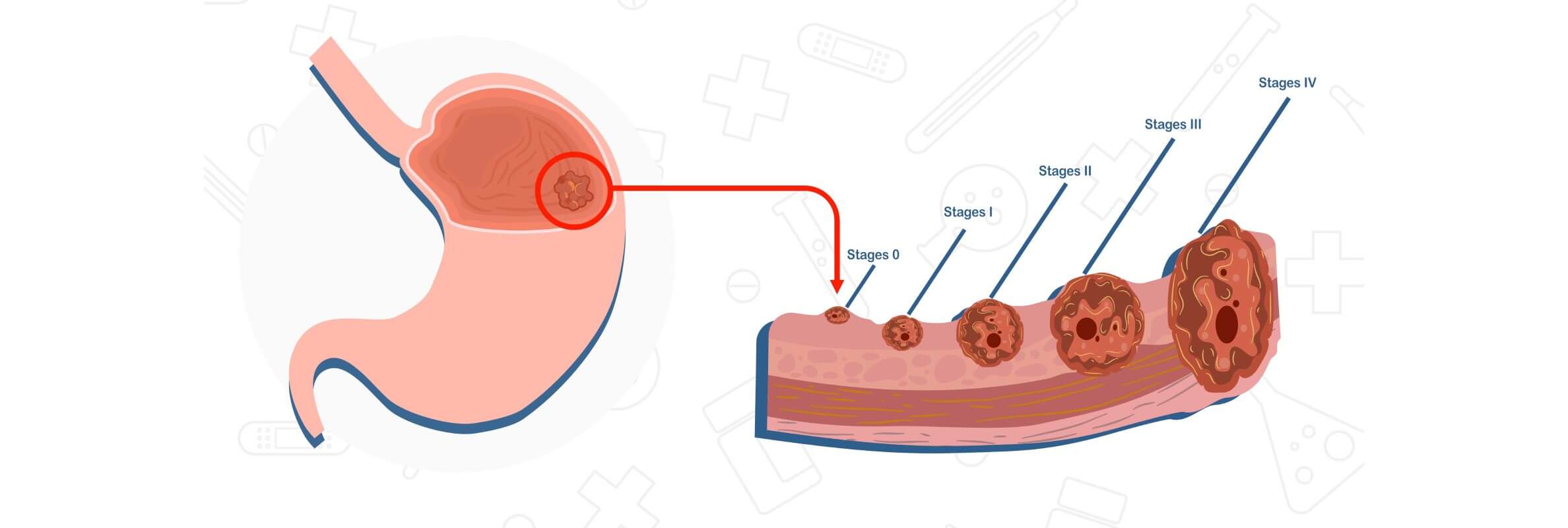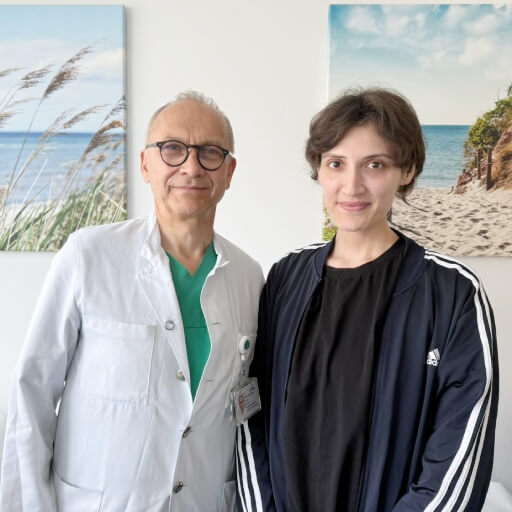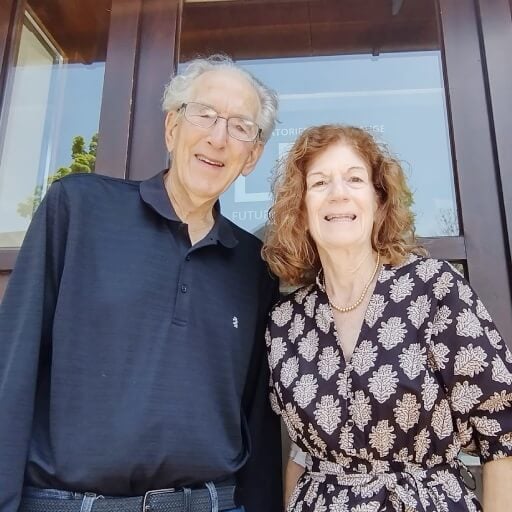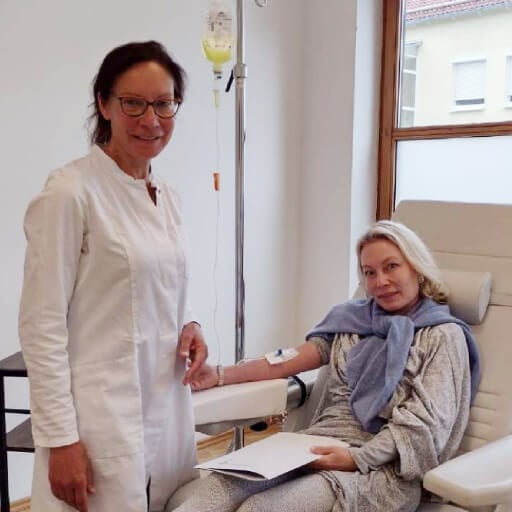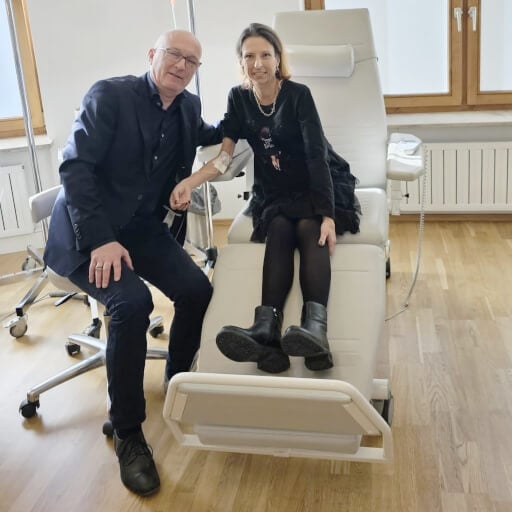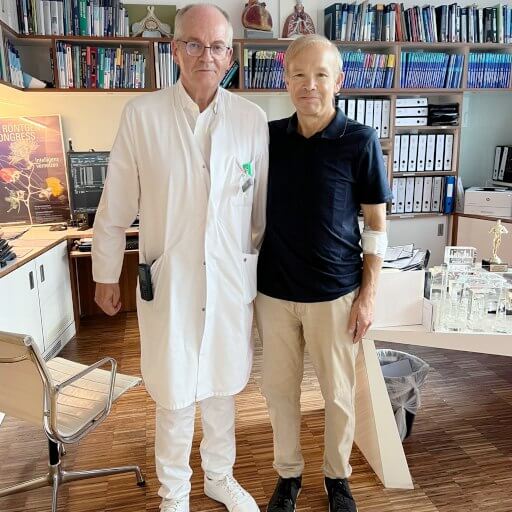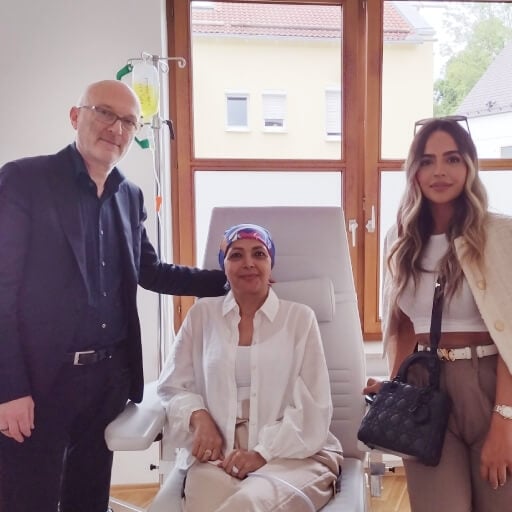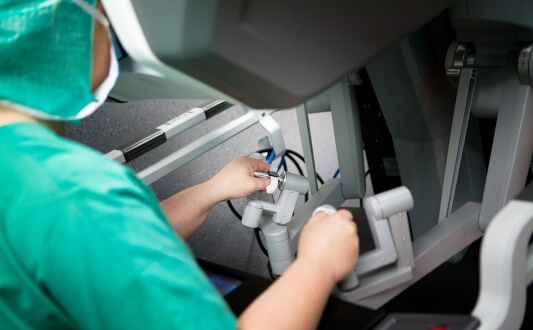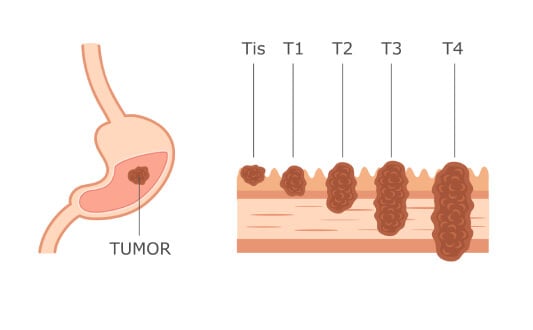Stage 4 stomach cancer affects approximately 30,300 Americans annually, primarily those over 55, representing 1.5% of all cancers [6]. While this type of oncology presents serious challenges, breakthrough treatments in advanced medical centers are transforming outcomes. Modern therapies like HIPEC, PIPAC, and dendritic cell vaccines achieve remarkable results. These innovative methods work precisely against cancer cells while causing fewer side effects, allowing patients to maintain their quality of life. Your diagnosis doesn't define your future – today's advances create genuine opportunities for survival.
Understanding Stage 4 Stomach Cancer
Receiving a stage 4 stomach cancer diagnosis means the cancer has spread from your stomach to other parts of your body, such as your liver, lungs, or the lining of your abdomen [7]. When cancer spreads like this, doctors call it metastatic.
Stage 4 cancer cannot typically be cured with surgery alone, but this doesn't mean there's nothing that can be done. Today's treatments focus on controlling the cancer's growth, managing symptoms, and helping you maintain the best possible quality of life.
The survival statistics you might read – showing a 7% five-year survival rate – represent averages from large groups of people. These numbers cannot predict what will happen in your specific situation. Every person's cancer is different, and many factors influence how you might respond to therapy:
- Your age and other medical conditions
- The specific characteristics of your cancer cells
- Whether doctors can remove some of the cancer with surgery
Remember that these statistics often reflect older treatments and may not account for newer therapies that could benefit you.
Standard Stage 4 Stomach Cancer Treatment
Standard stage 4 stomach cancer treatment focuses on controlling the disease, managing symptoms, and maintaining quality of life rather than achieving a cure.
Chemotherapy remains the primary treatment approach, using various drug combinations to slow cancer growth and shrink tumors. Doctors select the most appropriate chemotherapy regimen based on your overall health and how well you tolerate treatment. While chemotherapy can extend survival and improve symptoms, response rates vary, and the cancer often becomes resistant to medications over time.
Radiation therapy utilizes high-energy beams to target cancer cells and can be particularly effective in managing symptoms. It helps control bleeding, reduces pain, and can shrink tumors that are blocking the stomach or causing other complications. However, radiation therapy alone is rarely a curative late-stage stomach cancer treatment.
Surgery plays a more limited role but remains valuable in specific situations. Doctors may recommend surgery for stage 4 gastric cancer to:
- Remove tumors causing severe bleeding
- Bypass the obstructed areas to restore normal eating
- Relieve symptoms that significantly impact quality of life
While standard approaches provide important benefits, they typically offer modest improvements in survival. Most patients receiving conventional treatments experience disease progression within months, highlighting the need for more innovative strategies.
Innovative Therapies for Late-Stage Stomach Cancer
Advanced medical centers now offer breakthrough therapies that go far beyond standard chemotherapy and radiation for late-stage stomach cancer. These treatments can reach cancer cells that conventional therapies often miss, providing patients with powerful new options when traditional approaches prove insufficient.
Fighting Stomach Cancer with Controlled Heat: How Hyperthermia Works
Hyperthermia uses controlled heat as a powerful weapon against stomach cancer, exploiting cancer cells' vulnerability to elevated temperatures. This stage 4 stomach cancer treatment heats targeted areas to 104-113°F, triggering anti-cancer mechanisms that work alongside conventional therapies.
The process disrupts repair enzymes that help cancer cells recover from chemotherapy and radiation, blocking their regenerative abilities. At temperatures above 104°F, heat shock proteins activate the immune system and label cancer cells for easier recognition. When temperatures reach 107°F, programmed cell death begins in malignant tissue.
Medical centers utilize local hyperthermia for specific tumor sites, regional hyperthermia for larger areas, and whole-body hyperthermia to sensitize widespread metastases.
Key advantages for stage 4 stomach cancer treatment include:
- Enhanced effectiveness of chemotherapy and radiation by 30-50%
- Renewed sensitivity in previously resistant tumors
- Improved blood flow for better drug delivery
- Minimal damage to surrounding healthy tissue
- Compatible with other cancer treatments
Hyperthermia sessions are typically scheduled over several weeks, making it an accessible option for patients seeking to maximize their treatment effectiveness while maintaining their quality of life during cancer care.
HIPEC: Heated Chemotherapy for Deep Abdominal Cancer
Hyperthermic intraperitoneal chemotherapy is used when stomach cancer has spread to the abdominal lining. While traditional surgery often cannot remove malignant tissue completely, HIPEC combines aggressive tumor removal with direct delivery of heated chemotherapy to the abdomen.
This specialized procedure involves two critical steps. First, surgeons perform cytoreductive surgery to remove all visible tumor tissue from the abdominal cavity and affected organs. Second, they circulate heated chemotherapy solution directly throughout the abdomen for 90 minutes, targeting microscopic cancer cells that surgery cannot reach.
The heated chemotherapy delivers concentrations up to 15-20 times higher than traditional intravenous injections while limiting exposure to the rest of your body. Heat enhances drug penetration and effectiveness, disrupting the ability of cancer cells to repair themselves while promoting their destruction.
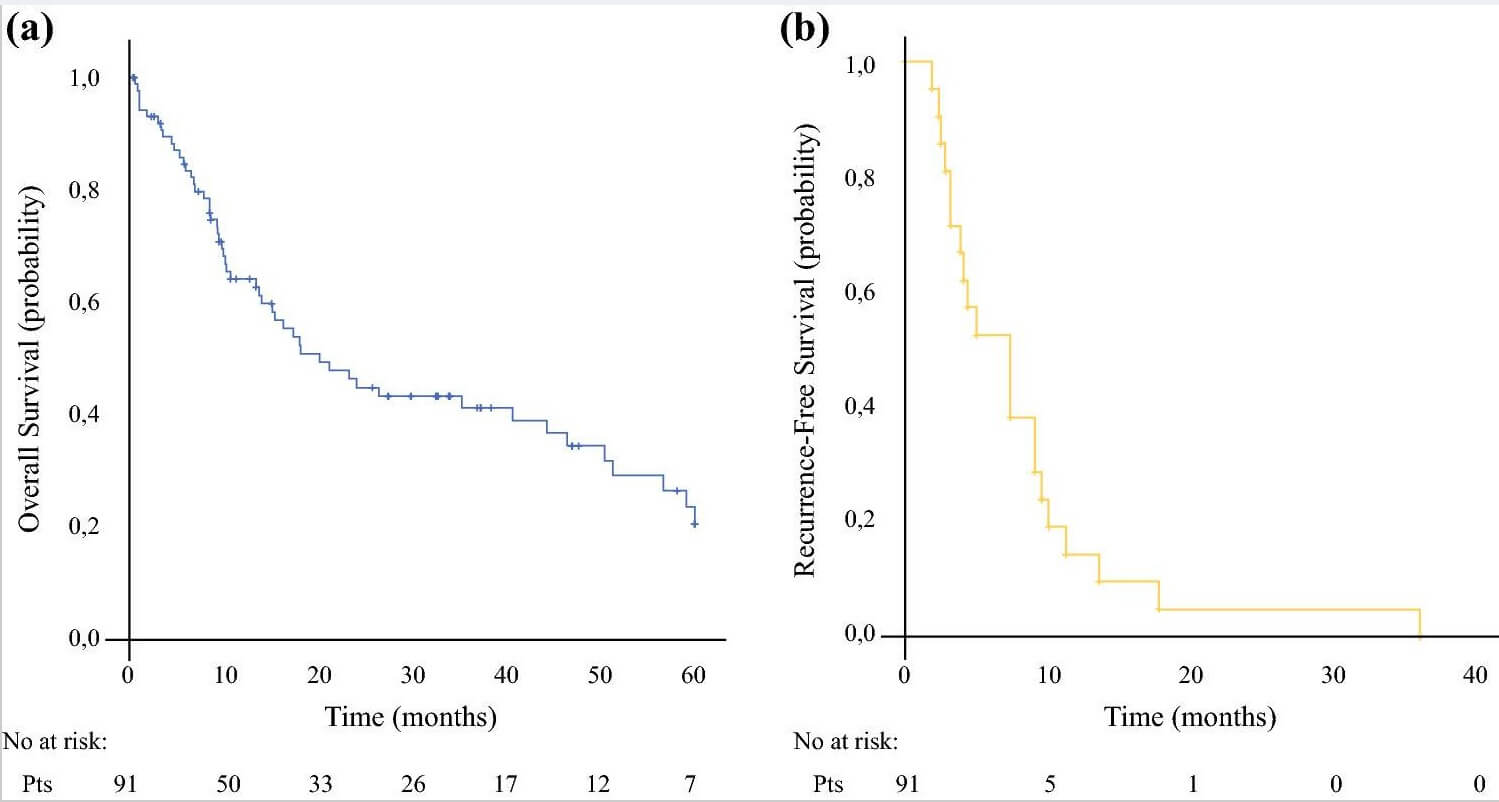
During stage 4 stomach cancer treatment, HIPEC offers several advantages:
- Targets cancer cells that conventional approaches often miss
- Delivers extremely high drug concentrations directly to affected areas
- Heat makes cancer cells more vulnerable to chemotherapy
- Can achieve disease control when other methods have failed
- Potentially curative for select patients with limited spread
Leading German surgeon Dr. Michael Lipp, who has performed HIPEC procedures since 2015, explains why this intervention represents the only potentially curative option for abdominal spread and how proper patient selection can lead to complete cancer cure in select cases.
Leading German Surgeon Dr. Lipp Reveals the Power of HIPEC in Cancer Treatment
PIPAC: Aerosol Chemotherapy for Hard-to-Reach Stomach Cancer Sites
Pressurized intraperitoneal aerosol chemotherapy offers a gentler alternative to HIPEC for patients with stomach cancer that has spread to the abdominal lining. While HIPEC requires major surgery lasting many hours, PIPAC is a minimally invasive procedure suitable for patients who are too frail for extensive operations.
This innovative technique uses laparoscopic surgery, requiring only two small abdominal incisions. Chemotherapy is transformed into a pressurized aerosol and distributed throughout the abdominal cavity under controlled pressure. The aerosol penetrates tumor tissues more effectively than conventional liquid chemotherapy, reaching areas that other treatments often miss.
The procedure typically lasts only 60-90 minutes and can be repeated multiple times as needed. Unlike HIPEC's single procedure approach, PIPAC allows for ongoing stage 4 stomach cancer treatment through repeated sessions, making it valuable for patients requiring long-term care.
PIPAC delivers chemotherapy as an aerosolized substance under laparoscopic pressurization, leading to greater spatial distribution and tissue penetration of the drug.
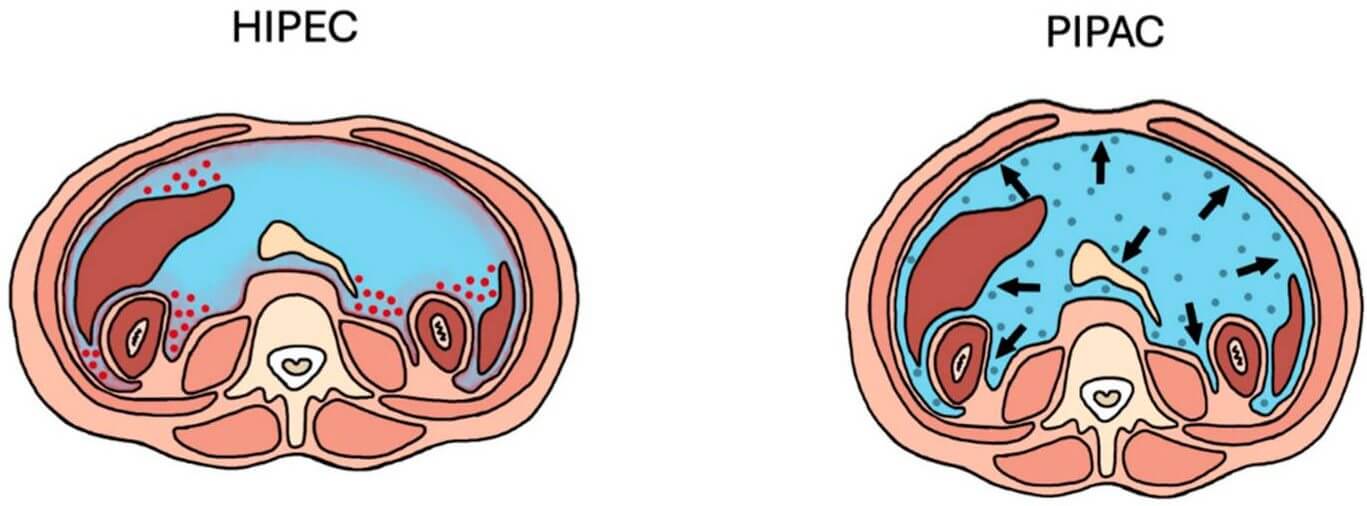
Key advantages include:
- Minimal physical trauma with faster recovery
- Outpatient procedures or short hospital stays of 2-3 days
- Can be safely repeated as disease management requires
- Compatible with ongoing systemic chemotherapy
- Suitable option for patients too frail for major surgery
- May potentially downstage the disease for future surgical options
Recent studies show that patients receiving three or more PIPAC treatments achieve better survival outcomes and stronger clinical responses while maintaining shorter hospital stays, making this an accessible option for late-stage stomach cancer treatment.
TACE: Targeted Treatment of Stage 4 Stomach Cancer Through Blood Vessel Blocking
Transarterial chemoembolization offers a precise weapon against stomach cancer metastases, particularly in the liver, where spread often becomes life-threatening. This minimally invasive procedure targets multiple metastases simultaneously within one anatomical region, delivering concentrated chemotherapy directly where it's needed most.
During TACE, interventional radiologists insert a thin catheter through a small groin incision and navigate it through blood vessels to reach the arteries feeding the tumors. Using advanced imaging guidance, they inject concentrated chemotherapy drugs directly into these vessels, followed by embolic materials that block blood flow to the cancer.
This dual-action approach works by starving tumors of their blood supply while delivering drug concentrations up to 20 times higher than traditional intravenous chemotherapy. The embolic materials trap chemotherapy near the tumor, maximizing its effect while minimizing exposure to healthy tissue.
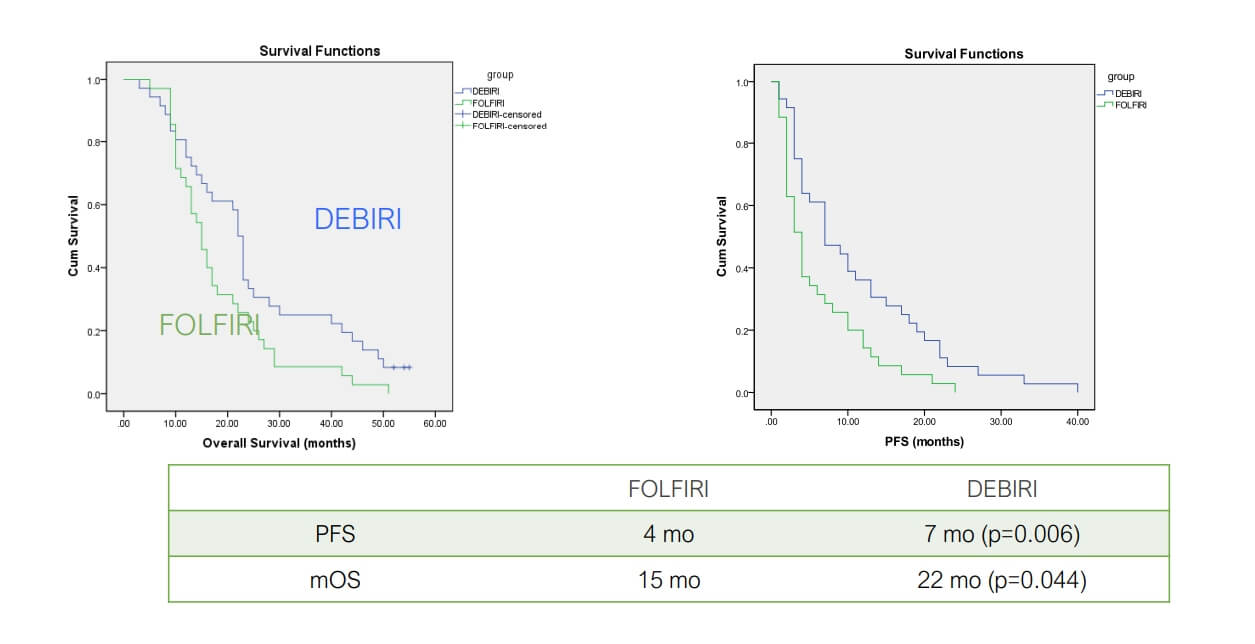
Key advantages include:
- Targets multiple metastases in one session
- Delivers extremely high drug concentrations directly to tumors
- Minimal systemic side effects compared to conventional chemotherapy
- Can be repeated as needed for ongoing disease control
- Often performed as an outpatient procedure with a short recovery
10 Years vs. 17 Months: Prof. Kovács on Combining Ablation with Systemic Therapy
Regional Chemotherapy: Delivers Chemo Where It Is Necessary
For stage 4 stomach cancer regional chemotherapy solves a fundamental problem: conventional treatment dilutes across your entire bloodstream before reaching tumors. Direct arterial delivery changes everything – flooding cancerous tissue with concentrations 15-20 times higher than systemic methods achieve.
During the procedure interventional radiologists thread thin catheters through a small groin incision, navigating toward tumor-feeding arteries under imaging guidance. Three techniques target different patterns. Hypoxic abdominal stop-flow perfusion temporarily halts circulation to trap drugs where peritoneal metastases concentrate; upper abdominal perfusion isolates the gastric region; intraarterial infusion continuously feeds chemotherapy through tumor vessels. Blood filtration removes residual drugs within 45 minutes.
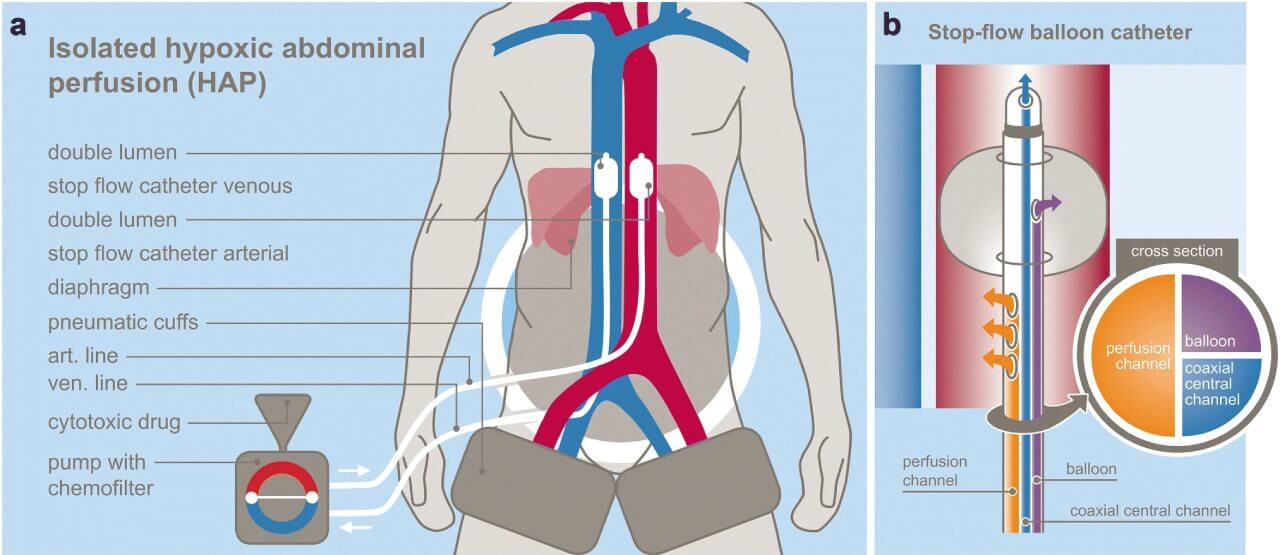
Among the key advantages are minimal systemic toxicity. And as for clinical outcomes, patients with peritoneal metastases who had exhausted all standard options achieved 17.4-month median survival – extending to 23.5 months for those with prior resection [8].
Electrochemotherapy for stomach cancer stage 4
Electrochemotherapy treatment for metastatic stomach cancer uses controlled electrical currents to perforate tumor cell membranes – creating temporary nanoscale openings that allow chemotherapy to flood inside at high concentrations. Brief pulses open cellular doorways where none existed and the chemo follows: drugs penetrate 70-80% more effectively.
Under general anesthesia, surgeons position specialized needle electrodes around tumors at precise 2.5-3 cm intervals using imaging guidance. Computer-controlled generators deliver pulses synchronized with cardiac rhythm – preventing arrhythmia while creating membrane pores. Chemo agents immediately surge through these openings. Most patients leave the healthcare facility within 24-48 hours.
The method targets tumors near vital organs where surgery risks too much. It is effective against peritoneal metastases resistant to systemic treatment. The cost of electrochemotherapy ranges from €7,500-12,000 – electrochemotherapy cost is considerably less than repeated conventional cycles while delivering superior precision.
Electro-chemotherapy proves particularly valuable for advanced disease. Professor Karl Reinhard Aigner pioneered combining regional perfusion with electroporation across 20,000+ procedures. His interview reveals advantages of these transformative strategies for stage 4 stomach cancer patients.
Targeted Therapy: Treatments Tailored to Your Stomach Cancer
Targeted therapy represents a precision medicine approach that tailors a therapeutic protocol to your cancer's unique genetic fingerprint. Unlike traditional chemotherapy, which affects all rapidly dividing cells, targeted treatments specifically attack cancer cells based on their molecular characteristics.
Several targeted therapy groups show promise for stomach cancer. HER2-targeting antibodies bind to cancer cells overproducing HER2 protein, blocking growth signals and marking cells for immune system destruction. Anti-angiogenesis drugs starve tumors by blocking blood vessel formation and cutting off nutrients needed for growth. Growth factor inhibitors interfere with cellular communication pathways that drive cancer proliferation. Protein-targeting antibodies attack specific proteins found on stomach cancer cell surfaces, delivering treatment directly to malignant tissue.
Key advantages of targeted therapy include:
- Personalized approach based on your tumor's genetic profile
- Often fewer side effects than traditional chemotherapy
- Can work when traditional chemo proves insufficient
- Potential for combination with other treatments
As researchers continue developing new targeted treatments, these precision therapies are becoming increasingly important tools in the fight against terminal stomach cancer, offering patients more treatment options than ever before.
Dendritic Cell Therapy for Stage 4 Stomach Cancer: Training Your Immune System to Fight
Dendritic cell therapy harnesses your body's natural immune system to fight stomach cancer by training specialized immune cells called dendritic cells to recognize and destroy cancer. These cells, often called the "officers" of immunity, naturally present threats to other immune cells but often fail to function properly in cancer patients.
The Nobel Committee acknowledged the monumental role of dendritic cells by awarding the 2011 Nobel Prize in Medicine to their discoverer, American immunologist Ralph Steinman [5]. This groundbreaking discovery revolutionized our understanding of immune system function and opened new horizons in cancer treatment.
The treatment process involves collecting a blood sample from which dendritic cells are extracted and cultured in a laboratory for one week. During this time, these cells are "educated" to recognize specific proteins from your cancer cells, creating a personalized vaccine. When reinfused, these trained dendritic cells activate your immune system's T-cells, generating a targeted anti-cancer response.
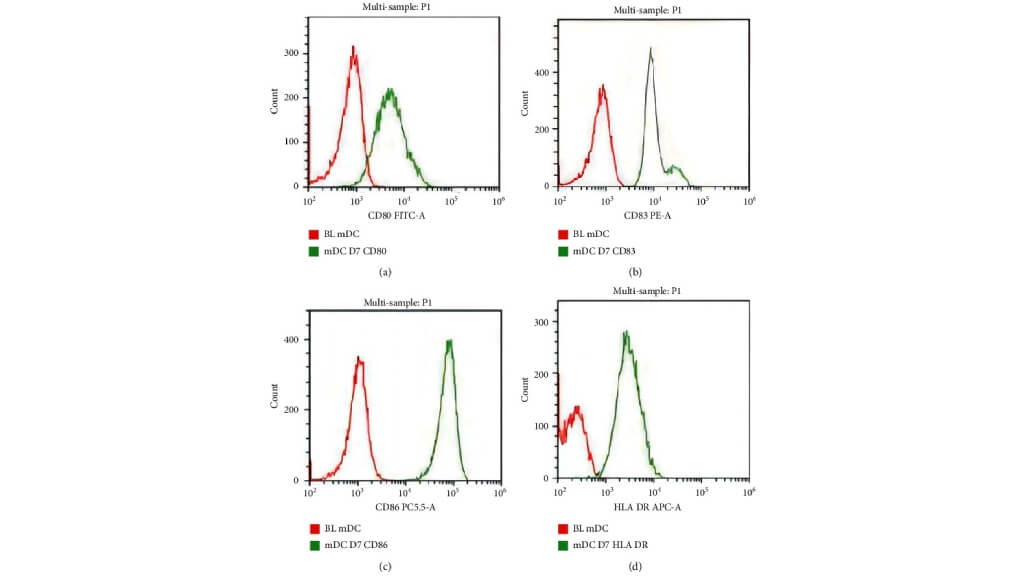
Key advantages include:
- Minimal side effects – primarily mild flu-like symptoms for 1-2 days
- Creates lasting immunity that continues working after treatment ends
- Compatible with other cancer treatments like chemotherapy and surgical interventions
- Suitable even for patients too frail for aggressive conventional treatments
- Personalized approach using your own immune cells and tumor antigens
Prof. Frank Gansauge, one of Germany's most experienced dendritic cell specialists with over 22 years of experience, explains how this innovative immunotherapy for stomach cancer can significantly extend survival and potentially achieve complete responses in advanced gastric cancer patients.
Leading Immunotherapy Expert Prof. Frank Gansauge: "Revolutionizing Cancer Treatment with Dendritic Cell Therapy"
| Characteristic | Standard Methods | Innovative Methods |
|---|---|---|
| 2-Year Survival Rate | Approximately 25% for metastatic cancer | Up to 60% for metastatic disease |
| Response Rate | Less than 10% positive outcomes | 45-65% positive response |
| Time Investment | Multiple rounds spanning months | Up to 4 sessions |
| Side Effects | Extensive systemic impact (nausea, severe fatigue, total hair loss, weakened immunity, skin reactions) | Predominantly minor effects (primarily localized temporary discomfort) |
| Cost of Treatment in Germany | €80,000 - €150,000 full course | €25,000 - €60,000 full course |
| Cost of Treatment in Great Britain | €90,000 - €165,000 full course | €70,000 - €120,000 full course |
| Cost of Treatment in the USA | €100,000 - €180,000 full course | €100,000 - €150,000 full course |
Source: Booking Health clinical analytics. Actual treatment expenses vary based on individual patient requirements, hospitalization duration, continuous medical oversight demands, and supplementary costs including diagnostic procedures, travel arrangements, and accommodation services.
Real Patient Stories and Treatment Outcomes in Stage 4 Stomach Cancer
Majid Naji Al Obaidi from Iraq received a diagnosis of metastatic stomach cancer and decided to seek advanced treatment abroad. He chose the University Hospital Frankfurt am Main with Prof. Vogl for TACE (transarterial chemoembolization) treatment.
"We booked at Booking Health for stomach cancer treatment," Majid shares. "The medical advisor contacted us and explained the treatment program, providing all necessary medical information. Miss Nour, the travel manager, was in constant contact to help facilitate visa procedures from Iraq, transportation, coordinate hospital appointments, and answer all inquiries."
His treatment was carried out in two stages. First, he received comprehensive care at the Clinic of Advanced Biological Medicine with Dr. Siebenhühner, which included specialized infusion therapy and additional supportive treatments. Following this phase, he underwent TACE at the University Hospital Frankfurt with Prof. Vogl.
"Praise be to God, the whole team was cooperating with us. We would like to thank them very much. I recommend this company to anyone looking for treatment in Germany."
Majid's experience demonstrates how advanced treatments like TACE can be integrated into comprehensive care programs, providing patients with metastatic disease access to cutting-edge therapeutic options that may not be available in their home countries.

Regain Hope with Innovative Stage 4 Stomach Cancer Treatments
Receiving a stage 4 stomach cancer diagnosis changes everything in an instant. The words may echo in your mind, and you might wonder what possibilities remain. Yet beyond traditional treatment approaches, medical science has developed remarkable new therapies that are changing what's possible for patients with advanced disease.
Modern medicine continues advancing rapidly, bringing new possibilities to patients who may have been told "options are limited." Unlike conventional treatments that often require lengthy hospital stays and cause significant side effects, many innovative approaches can be completed in just days with minimal disruption to your life.
Leading medical centers abroad provide distinct advantages for accessing these breakthrough therapies: state-of-the-art equipment that ensures precise interventions, oncology specialists with extensive training in the most advanced treatment methods, and facilities specifically designed for international patients' comfort and care. These centers offer comprehensive access to all progressive treatment options, enabling doctors to achieve long-term disease control that may not be available elsewhere.
Advanced treatments like HIPEC, PIPAC, TACE, hyperthermia, and dendritic cell immunotherapy work differently than traditional approaches. They target cancer cells more effectively while causing fewer side effects, allowing you to maintain a better quality of life during treatment.
Innovative methods can achieve remarkable results:
- Halt disease progression and control tumor growth
- Extend survival beyond traditional expectations
- Improve overall health and immune function
- Maintain dignity and comfort throughout treatment
- Offer hope when conventional options prove insufficient
While these treatments may not cure advanced cancer, they represent powerful tools for extending life and preserving what matters most to you. Leading medical centers worldwide are achieving outcomes that seemed impossible just years ago.
Don't abandon hope when facing advanced stomach cancer. Today's innovations provide new pathways forward, offering the possibility of more time with loved ones and meaningful experiences ahead.
A Medical Journey: Every Step of the Way With Booking Health
Finding the best treatment strategy for your clinical situation is a challenging task. Being already exhausted from multiple treatment sessions, having consulted numerous specialists, and having tried various therapeutic interventions, you may be lost in all the information given by the doctors. In such a situation, it is easy to choose a first-hand option or to follow standardized therapeutic protocols with a long list of adverse effects instead of selecting highly specialized innovative treatment options.
To make an informed choice and get a personalized cancer management plan, which will be tailored to your specific clinical situation, consult medical experts at Booking Health. Being at the forefront of offering the latest medical innovations for already 12 years, Booking Health possesses solid expertise in creating complex cancer management programs in each case. As a reputable company, Booking Health offers personalized stage 4 stomach cancer treatment plans with direct clinic booking and full support at every stage, from organizational processes to assistance during treatment. We provide:
- Assessment and analysis of medical reports
- Development of the medical care program
- Selection of a suitable treatment location
- Preparation of medical documents and forwarding to a suitable clinic
- Preparatory consultations with clinicians for the development of medical care programs
- Expert advice during the hospital stay
- Follow-up care after the patient returns to their native country after completing the medical care program
- Taking care of formalities as part of the preparation for the medical care program
- Coordination and organization of the patient's stay in a foreign country
- Assistance with visas and tickets
- A personal coordinator and interpreter with 24/7 support
- Transparent budgeting with no hidden costs
Health is an invaluable aspect of our lives. Delegating management of something so fragile yet precious should be done only to experts with proven experience and a reputation. Booking Health is a trustworthy partner who assists you on the way of pursuing stronger health and a better quality of life. Contact our medical consultant to learn more about the possibilities of personalized treatment with innovative methods for metastatic stomach cancer with leading specialists in this field.
Modern Cancer Treatment: Patient Journeys with Booking Health
Frequently Asked Questions of Our Patients About Stage 4 Stomach Cancer Treatment
Send request for treatmentStage 4 stomach cancer cannot typically be cured with surgery alone, but breakthrough treatments like HIPEC can be potentially curative for select patients with limited spread.
Traditional statistics show a 7% five-year survival rate, but innovative cancer treatment methods achieve up to 60% two-year survival rates for metastatic disease. Individual outcomes vary based on cancer characteristics and treatment response.
The most effective approaches combine innovative therapies like HIPEC, PIPAC, TACE, and dendritic cell immunotherapy. These advanced methods target cancer cells more precisely than conventional stomach cancer treatments.
Surgery plays a limited but valuable role, primarily to manage bleeding, bypass obstructions, or as part of HIPEC procedures. Cytoreductive surgery combined with heated chemotherapy offers the best surgical outcomes.
Yes, dendritic cell therapy trains your immune system to recognize and destroy cancer cells. This personalized immunotherapy creates lasting immunity with minimal side effects, and has numerous benefits including compatibility with other treatments.
Treatment price varies by location and method. Innovative therapies range from €25,000-€60,000 in Germany, while traditional approaches cost between €80,000-€150,000. Expenses depend on individual requirements and hospitalization duration.
Leading international hospitals provide comprehensive access to breakthrough therapies with specialized equipment and oncology experts. Booking Health facilitates treatment abroad, offering personalized programs with full support from clinic selection to treatment coordination.
Stage 4 stomach cancer often causes persistent stomach pain, loss of appetite, nausea, vomiting, unintentional weight loss, fatigue, and abdominal swelling. When metastases are present, symptoms may also include jaundice, shortness of breath, or bone pain.
For stage 4 stomach cancer, the 2-year survival rate with standard treatments averages around 25%. On the other hand, innovative therapies (e.g., HIPEC, PIPAC, TACE, or dendritic cell therapy) can increase it to up to 60% according to clinical data.
The response rate for conventional therapies in stage 4 stomach cancer is typically below 10%. In comparison, advanced methods (HIPEC or dendritic cell immunotherapy) show 45-65% positive response rates.
Traditional treatments for stage 4 stomach cancer often cause severe side effects, including nausea, fatigue, and immune suppression. In contrast, innovative therapies (e.g., PIPAC, HIPEC, and dendritic cell immunotherapy) generally cause milder effects, mostly limited to short-term local discomfort.
Stage 4 stomach cancer requires treatment, that can act locally and systemically at the same time. In Germany this is achieved through approaches such as HIPEC and PIPAC (for peritoneal carcinomatosis), TACE (for liver involvement), dendritic cell therapy and targeted drugs which expand options beyond conventional chemotherapy.
The best hospitals for stage 4 stomach cancer are those capable of performing complex procedures rather than only systemic therapy. In Germany specialized centers combine HIPEC, PIPAC, interventional radiology and immune-based treatments within coordinated treatment pathways for advanced gastric cancer.
When standard protocols are no longer sufficient Germany offers broader treatment possibilities for stage 4 stomach cancer. The availability of innovative methods allows patients to receive treatment strategies, that are rarely combined in routine oncology care elsewhere.
Choose treatment abroad and you will for sure get the best results!
Authors:
This article was edited by medical experts, board-certified doctors Dr. Nadezhda Ivanisova, and Dr. Bohdan Mykhalniuk. For the treatment of the conditions referred to in the article, you must consult a doctor; the information in the article is not intended for self-medication!
Our editorial policy, which details our commitment to accuracy and transparency, is available here. Click this link to review our policies.
Sources:
[1] PubMed. Cytoreductive Surgery and Hyperthermic Intraperitoneal Chemotherapy for Gastric Cancer with Synchronous Peritoneal Metastases: Multicenter Study of 'Italian Peritoneal Surface Malignancies Oncoteam-S.I.C.O.'. https://pubmed.ncbi.nlm.nih.gov/34057569/
[2] PubMed. Evolution in the Surgical Management of Gastric Cancer Peritoneal Metastases. https://pubmed.ncbi.nlm.nih.gov/39796727/
[3] Fiorentini G et al Anticancer Res 2012;32:1387. Aliberti C et al Ancancer Res 2011;31:4581. Richardson A et al J Vasc Interv Radiol 2013;24:1209
[4] PubMed. Dendritic Cell Vaccine Loaded with MG-7 Antigen Induces Cytotoxic T Lymphocyte Responses against Gastric Cancer. https://pubmed.ncbi.nlm.nih.gov/35480145/
[5] PubMed. The 2011 Nobel Prize in physiology or medicine. https://pubmed.ncbi.nlm.nih.gov/22053831/
[6] American Cancer Society. Key Statistics About Stomach Cancer. https://www.cancer.org/cancer/types/stomach-cancer/about/key-statistics.html
[7] Cancer Research UK. Stage 4 stomach cancer. https://www.cancerresearchuk.org/about-cancer/stomach-cancer/stages/stage-4
[8] Aigner K, Vashist YK, Selak E, Gailhofer S, Aigner KR. Efficacy of Regional Chemotherapy Approach in Peritoneal Metastatic Gastric Cancer. J Clin Med. 2021;10(23):5322. https://doi.org/10.3390/jcm10225322 [DOI]
Read:
New Effective Treatments for Stage 4 Cancer: Innovations in Oncology
Article menu:
- Understanding Stage 4 Stomach Cancer
- Standard Stage 4 Stomach Cancer Treatment
- Innovative Therapies for Late-Stage Stomach Cancer
- Real Patient Stories and Treatment Outcomes in Stage 4 Stomach Cancer
- Regain Hope with Innovative Stage 4 Stomach Cancer Treatments
- A Medical Journey: Every Step of the Way With Booking Health
- Frequently Asked Questions of Our Patients About Stage 4 Stomach Cancer Treatment
Don't know where to start?
Contact Booking Health